
While you’re getting older, a whole new generation of consumers is coming on board—I’m talking about Gen Z. But they don’t necessarily connect to the same marketing messages as your current audience.
With any new generation, it’s your role as a business owner to understand how to connect with them. But how do you do that? Well, this post is going to show you who Gen Z is and how you can market to them.
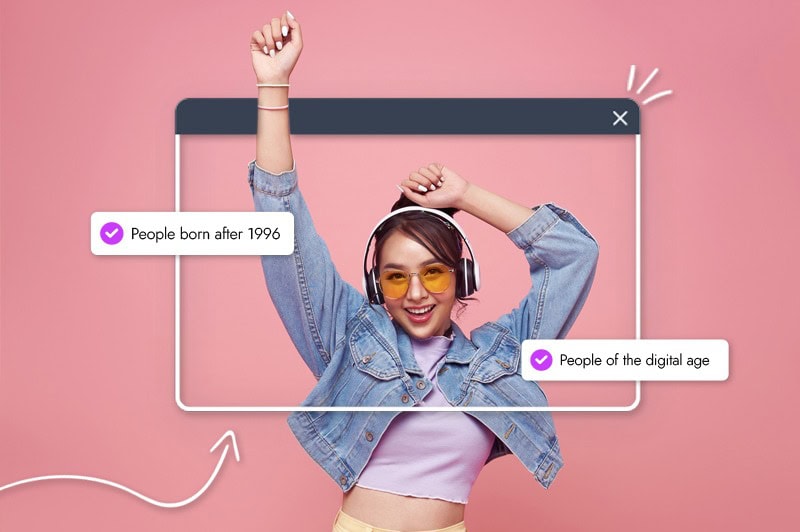
Before marketing to Gen Z, you need to know who they are. So, let’s cut to the chase. People born between 1997 and 2012 are considered Gen Z., But their date of birth isn’t what’s important; rather, their core values and characteristics will tell you what kind of consumer they are.
According to a census by Pew Research, Gen Z are the most ethnically and racially diverse generation, making up 30% of the world’s population. They’re tech savvy, social-minded, and grew up with smartphones and social media—this is what makes them truly unique. Gen Z is digital natives and is connected to brands that have clear values, practice inclusivity, are authentic, and have a strong online presence.
These values are clearly shown in Gen Z’s spending habits. Sixty-two percent of Gen Z consumers prefer buying from sustainable brands, and 73% are willing to spend more on sustainable products. Knowing who they are can help you connect with them.
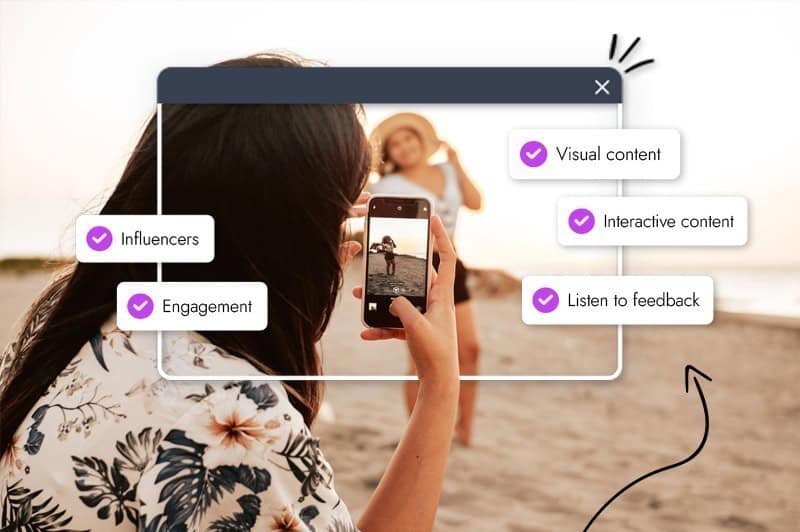
Oh, I know you wanna connect with them, but how? If you’re thinking it’s time to expand your audience and start connecting with Gen Z and if so, here’s how to do it.
If you’re not sure who your audience is (which is completely okay), read this post on how to conduct audience research to make sure Gen Z is the right audience for your business.
Gen Z isn’t phonies—they want to buy from businesses with strong values. Whether those values advocate for social issues, sustainable consumption, or ethical practices, having strong values is important for Gen Z.
However, to adopt those values, your business needs to live by them. Values aren’t something you can only market; a business is founded on them.
For example, Patagonia is an American outdoor clothing brand that values life on earth. That said, the business is built around the values of sustainability and environmental protection. They donate to preserve and restore the environment; they recycle their products, and their values are deeply rooted in their business.

In other words, don’t just come with values that you think will impress Gen Z. What’s important is that you choose values for your business that you stand by.
Another example is FentyBeauty. The Creator of FentyBeauty, Rihanna, wanted to create a makeup company that was inclusive of all skin types and tones. Inclusivity is a value she built her business on and displays it throughout her marketing campaigns—just like the image below.
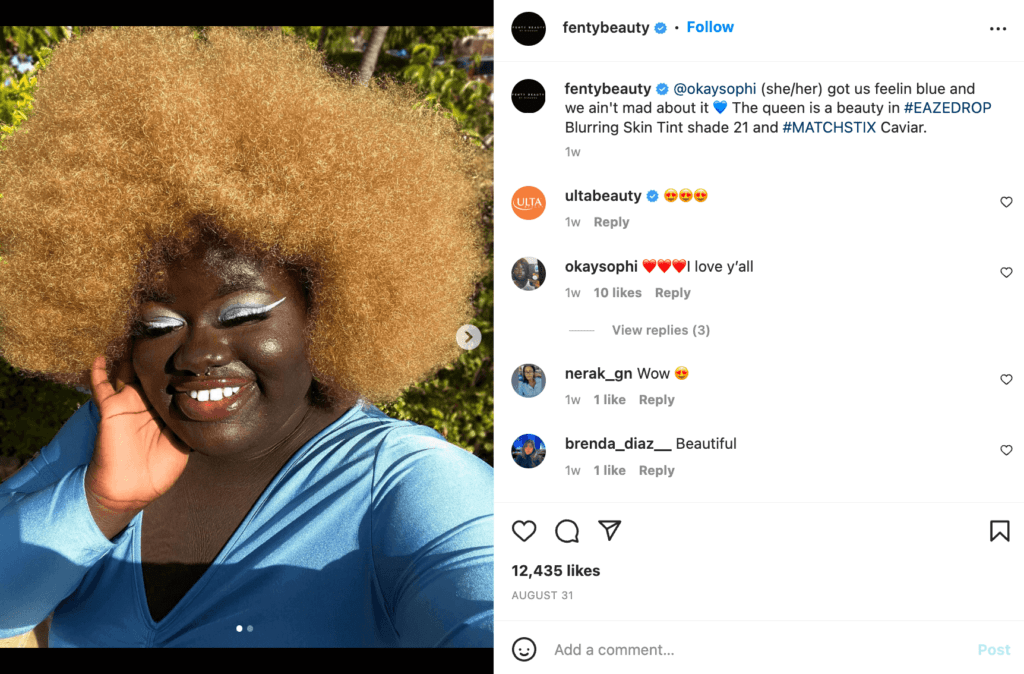
While marketing to millennials is all about creating aesthetically pleasing content, Gen Z is different. They’re not looking for curated content that fits within the lines. Gen Z values businesses that have strong voices and aren’t afraid to step outside of the lines. They appreciate a business that isn’t afraid to try new things
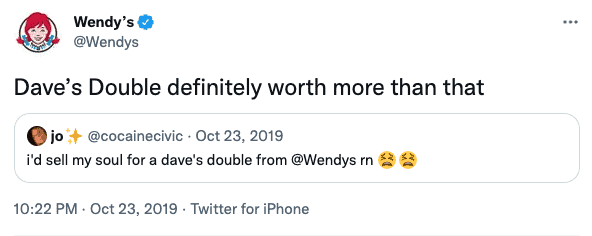
Take a look at what Wendy’s is doing. Wendy’s is showing off its personality for all to see. Wendy’s has a distinct personality that’s a little cheeky which attracts a younger audience. It also has a tongue-in-cheek response to followers and competitors, making it stand out from the rest.
Engaging with your followers and showing them that they’re seen is crucial for Gen Z. It also adds a humanizing element to your business that shows them there’s a face behind your business. Gen Z doesn’t want to feel like they’re just another dollar sign. They want to feel like they matter, that they’re important to your business.
Gen Z wants to be heard by businesses. When they provide feedback and reviews, it isn’t without reason—they want change, they want a better product/service. If you listen, they will follow. Forty-one percent of consumers believe a high-quality brand has strong customer service and timely responses.
We all have a little bit of FOMO (fear of missing out); what can I say? We’re only human. When marketing to Gen Z, think of ways to tap into their FOMO.
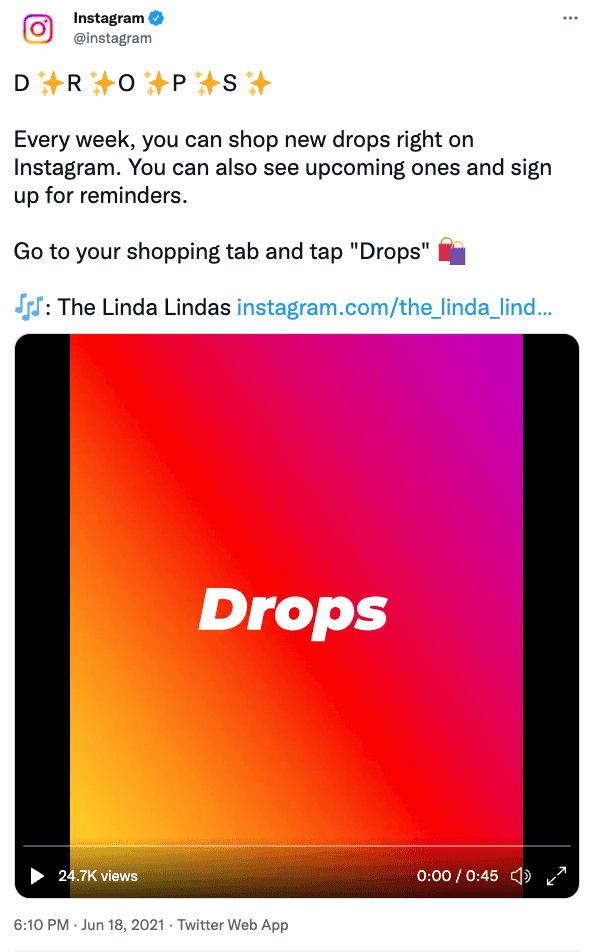
For example, Instagram Stories offers time-sensitive engagement, which you can use to create a buzz around upcoming launches for events, products, or services.
While people do read posts online, most people, especially Gen Z, get their information from interactive and visual content. Gen Z wants to do something when they land on your posts —tap, swipe—whatever.
Creating polls on Instagram or featuring quizzes on your Stories can help engage your Gen Z audience and give you more insight into what they like. Plus, interactive content helps show off your brand’s personality, so it’s a win-win.
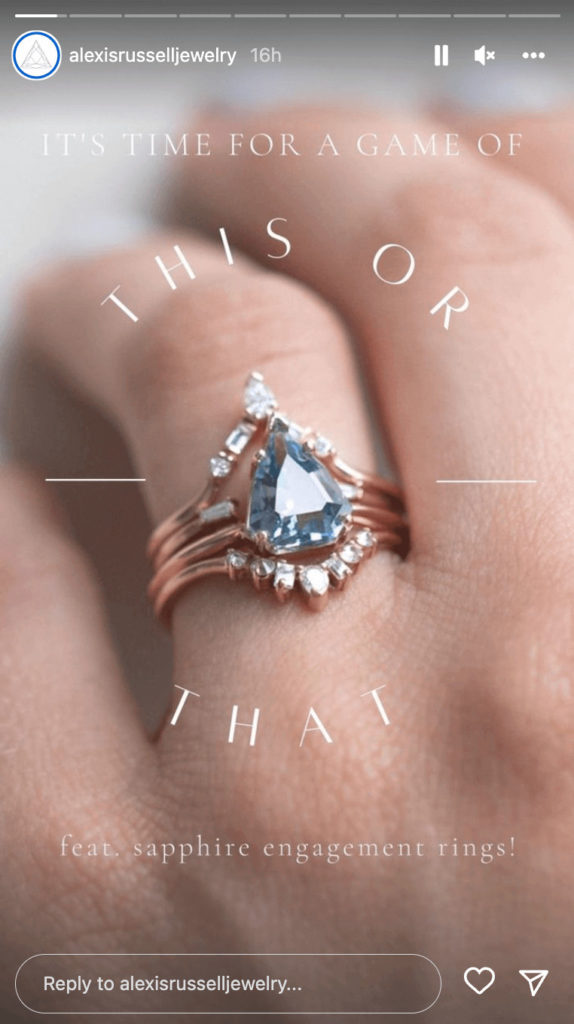
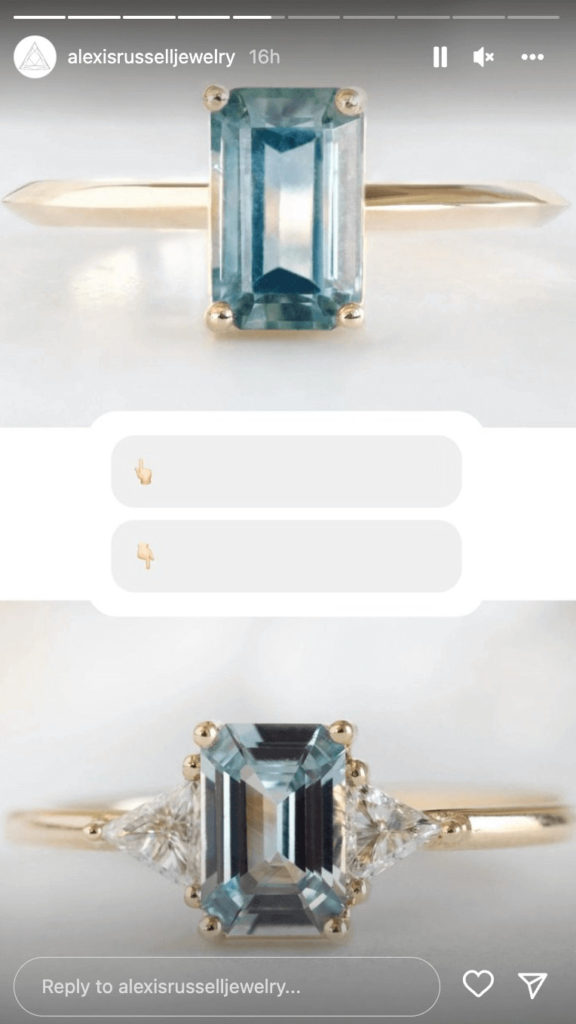
For example, Alexis Russell jewelry features a game on their Instagram Stories called “This or That,” where followers choose which piece of jewelry they like more. This game not only engages followers but helps the business understand what its audience likes.
Now, just because you’re not a Gen Z doesn’t mean you’re out of the game. But, you can help your product/service connect with Gen Z by collaborating with Gen Z influencers to TikTokers. They’ll be able to bring awareness about your business and help create that connection. You know the saying, Gen Z speaks to Gen Z (that is the saying…right?).
You don’t need to collaborate with Gen Z influencers with millions of followers, micro-influencers have a lot of power as well. You can also focus on Gen Z user-generated content to help create awareness.
If you’re considering expanding your audience and directing your marketing towards Gen Z, it’s a good idea.
But, before you do, look at the marketing strategies provided and see how you can use them in your marketing strategy. If you don’t have a marketing strategy yet (and you’ll need one), read this post on how to create a marketing strategy for your business.
This portion of our website is for informational purposes only. Tailor Brands is not a law firm, and none of the information on this website constitutes or is intended to convey legal advice. All statements, opinions, recommendations, and conclusions are solely the expression of the author and provided on an as-is basis. Accordingly, Tailor Brands is not responsible for the information and/or its accuracy or completeness. It also does not indicate any affiliation between Tailor Brands and any other brands, services or logos.
Products
Resources
©2025 Copyright Tailor Brands